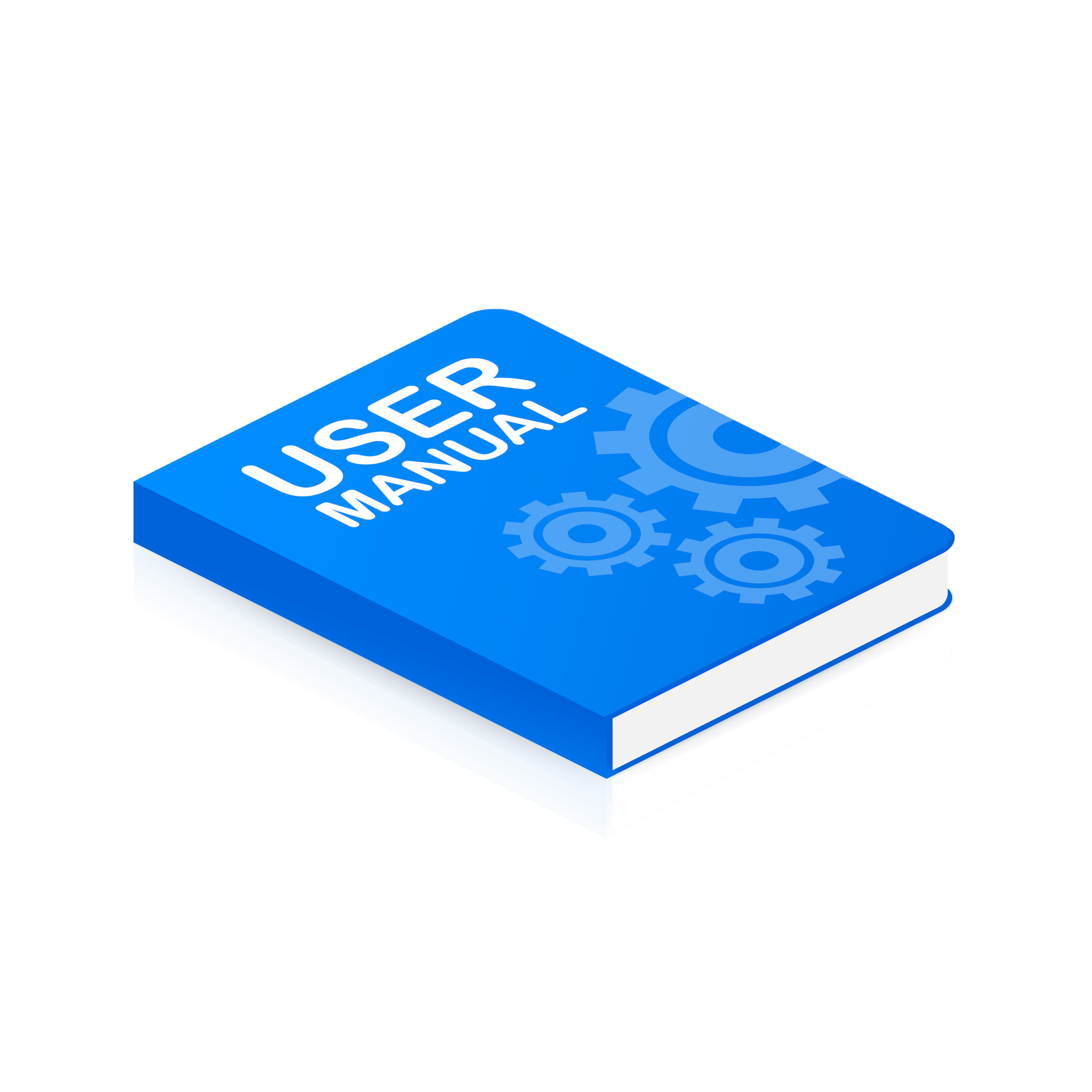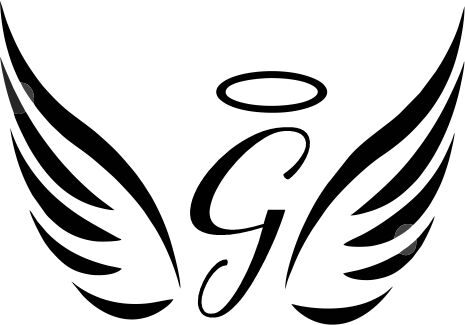Copywriting and technical writing are two distinct disciplines that are both widely used in business.
In this article we define what these two types of writing are, where and how they’re utilized, the differences and similarities between each, and the areas where they sometimes overlap.
We’ll also look at the skills required for each to help you determine which suits you best. So if you enjoy writing and would like to earn money doing so, perhaps even start a new career, this will help you decide which discipline to pursue and how to get started.

Should I Be A Copywriter Or A Technical Writer?
If you enjoy writing and want to make a career of it, copywriting and technical writing are two lucrative paths you can take.
You may also decide to pursue both disciplines, though generally people tend to gravitate towards one discipline over the other.
Where the is overlap between the two (more on this later) if you’re starting out it’s best to start in one area first and then learn a little about the other later. Which path you eventually choose largely depends on your skill sets and personality.
- Do you like to get your hands dirty and try things out? Or do you prefer to read the manual first?
- Do you like grand ideas and persuasive language, or detailed specifications and concise product descriptions?
- Do you get a buzz from selling products as ideas? Or are you more at home focusing on finding solutions to specific technical problems?

Copywriting And Technical Writing – In A Nutshell
Copywriting is sales writing, created specifically to generate revenue. It does so not with reason, but rather through emotion, using psychology to persuade potential customers to make a purchase. The language used is often more informal, using a more conversational tone. It’s all about knowing how to get inside the heads of your target audience.
Technical writing is more about form and function. It’s not concerned with emotion and is instead created to educate readers on how a product operates, rather than selling the product itself. The tone is generally more formal and less familiar, stating facts in a concise, matter-of-fact manner. It’s all about knowing the technical details of a product inside and out.
Copywriting and technical writing both require extensive writing skills and an ability to communicate clearly and unambiguously, with as little fluff and filler as possible.
Both writing professions require a degree of researching skills and editing skills, plus a considerable degree of creativity.
It’s also important to have a practical, working knowledge of the product/service in question, and your target audience, in order to project a credible degree of authority.
Copywriting And Technical Writing – Overlap
The level of overlap between copywriting and technical writing you experience in your career will largely depend on the industry you’re working in.
Those working in B2B or SaaS as copywriters will naturally need to adopt a more technical style of writing, since their target market is more technical in nature. Plus, more often than not, the key decision makers come from a technical background too, so you’ll need to be able to speak their lingo.
If you’re selling precision machinery or security software, for example, your copy should be less emotional and evocative and more tailored to engineers and IT professionals who have a more data-driven mindset.

Target Audience
If you’re a copywriter selling technical products you will still need to use strong calls to action and psychology in your copy, but always with a solution-driven approach.
And you better know the product inside and out from a technical point of view, otherwise your lack of experience will show and you lose credibility.
That’s why it’s always good practice, especially when working with a new product, service or company, to speak directly to the engineers and product teams and try and pick their brains and, wherever possible, ask to get a practical experience of the product or a software demo you can get your hands on.
Culture plays a part too. Though one should always be careful of generalizations, some countries are more idea-driven, while others are more facts based and a failure to understand that can be very costly in terms of time and money wasted.
I’ve seen Americans writing product brochures for the German market that read like cheesy infomercials, and I’ve also experienced Germans creating sales content for the UK market that read like algebra homework.
Both completely missed the mark when it came to connecting with their audience. And in both cases this could have easily been avoided by conducting proper market research beforehand.
One could argue that the difference between copywriting and technical is a matter of intent. Copywriting is all about selling concepts, while technical writing is more about explaining concepts.
Clarity matters in both, but for very different reasons. And as we’ve seen, especially in technical industries, there’s often overlap between the two.
So if you’re interested in writing for technology companies, selling software, hardware or engineering products, you’ll need to combine both skills together. This field is known technical copywriting.
So What Is Technical Copywriting?
Technical copywriting, as its name suggests, is a combination of both disciplines.
A technical copywriter is a professional writer who firstly needs to be able to employ clear and unambiguous language for explaining technical concepts, but at the same time needs to provide some sizzle to help that content sell.
In my experience, very few copywriters can write technical content. Similarly, few technical writers have the ability to tap into that wellspring of bubbling emotions to create content that truly sells.
For most of us, there’s nothing worse than reading sales copy that was written by an engineer or developer. Sure, the person responsible might now the product specifications better than anyone on the planet, perhaps even down to each single line of code, but that doesn’t mean they’re the right person to sell it to a mainstream audience.
Conversely, if you’re selling a B2B product to other techies, a regular copywriter, obsessed with storytelling, branding and grandiose language, isn’t going to cut it either.
You need to be speaking the same language as your target audience. No point making large sweeping statements about how revolutionary your product is, if they’re looking for facts, figures and precise details:
- What are the exact specifications?
- What are its dimensions?
- Is it compatible with X?
- Can I also use it to do Y?
Failure to answer these questions will cost you sales since your main target audience isn’t looking for grand ideas, they want precise answers. Without those, they’ll think most likely assume you’re trying to hide something and immediately call BS on your product and your company.
Good technical copywriting, therefore, is content that can sell to both the technical people AND the marketing people, while also convincing the finance department people that your product is the solution to all their problems.
You need to be able to sell specific stakeholders on the big picture while also hammering home the finer details.
It’s quite a balancing act, but if you can manage it consistently and build up a solid portfolio of effective examples, you can potentially earn a lot more than you could working as just copywriter or a technical writer.
Because these two skill sets are quite rare, and often require niche industry knowledge, competition for these types of roles is lower and salaries are higher. (Plus you won’t have to worry too much about being replaced by AI.)
Examples include:
- Tech industry content
- Engineering & construction
- Medical copywriting
- Saas copywriting
- Fintech copywriting
(And, arguably, legal and financial services copywriting could also be added to this list as they’re also specialist fields.)

The downside, however, is that you’re left in something of a chicken and egg situation, where employers are looking for experienced specialists with narrowly-defined resumes and, quite often, very specific academic qualifications, so breaking into the industry can be tough.
The other thing to keep in mind is that, even if you do manage to break into the industry, this level of narrow specialisation means your employment options are limited.
You may be able to find work online, or you may have to relocate to areas where your chosen industry is more densely established, and more often than not, these are major cities with higher living costs.
Plus there’s the possibility that, once you get locked into writing for a narrow industry, you’re more susceptible to changes or disruptions to that industry. Or you might decide you don’t want to do it anymore.
In either case, you may find it tough rebooting your writing career as you need to build up a new, more varied portfolio to better demonstrate your versatility.
Play To Your Strengths
The majority of content writers write content for the web only, and, as such, are not true copywriters or technical writers. But that’s usually how most content writers start their journey, taking freelance gigs here and there, building up their portfolios and gaining other valuable skills like SEO.
Doing this gives you the opportunity to try different types of writing and decide what type you prefer most.
If you prefer selling non technical products, then copywriting is probably the best route to take.
But if you prefer technical topics, software and IT topics, writing how-to guides or product descriptions that are technical in nature, then it’s clear you’re probably more suited to becoming a technical writer.
Both copywriters and technical writers can earn good salaries but it’s all about landing that first gig. Having a college obviously degree helps, but it’s possible to break into the industry without one, especially once you have built up a solid writing portfolio.
Making the jump from freelance content writer to a high earning copywriter or technical writer is possible, therefore, provided you put the work in.
Follow your instincts, play to your strengths and, although you may have to take all manner of gigs starting off, the earlier you make your decision the better. You don’t want to spend years of hard work only to end up with a job writing content you don’t enjoy. Instead you should do what you enjoy and what comes most naturally to you.
Many copywriters discover a preference for technical-based content and decide to pursue a career as a technical copywriter. If you feel you can produce content that can combine both disciplines, then you can look for ways to combine those skills and look for work as a technical copywriter.

Copywriting & Technical Writing FAQ
Is copywriting the same as technical writing?
No. Copywriting is content created to sell and is generally more aligned with marketing strategies
Technical writing is content created to explain technical concepts or provide instructions, for example like you might find in technical documentation such as how-to manuals.
Still, even if you don’t want to be a technical writer and even if your product isn’t necessarily technical, understanding its unique selling points will help you sell it better.

Ultimately your job is to use the written word to help potential buyers overcome real or imaginary objections by being as informative and persuasive as possible. Once all their concerns are dealt with, it’s easier to convince people of your product’s value.
And to help you do this, sometimes there’s nothing better than talking with the designers, developers and engineers who create the products as they can give you valuable, real-world insights into how your product or service works.
What kind of things do copywriters write?
Copywriters write content to make readers to take action, generally this is a sale or transaction of some kind.
Examples include landing pages, sales emails, press releases and other forms of promotional material.
While copywriting is often associated with the buying process, it also plays an important part of branding. Think of all of those popular corporate slogans – “just do it”, “I’m lovin’ it”, etc. – all of these were created by copywriters.
What type of things do technical writers write?
As the name suggests, technical writers create technical documents, examples include product specifications, user manuals, reference guides and similar documentation. These can be for internal use of for external user/consumer use, thoguh generally technical writers create a mix of both.
What skills do technical writers need?
If you’re a content writer wondering how to become a technical writer, the first thing you will require is technical acumen. You also require good communication skills and the ability to explain often complex technical concepts in clear and concise language.
If you’ve ever found some company’s technical products’ user manuals baffling to read and feel like you could have done a much better job, a career as a technical writer might be for you.
Can a technical writer be a copywriter?
Generally copywriters write copy designed to sell, but making the transition is possible if you learn the basics. Just remember, it’s not enough to explain a product, you need to find the psychological reasons for customers to buy it.
As a technical writer you may initially gravitate towards technical products and may find it harder to transition to selling more non technical products, for example, writing IT or SaaS copy may come effortlessly but selling cosmetics might be more challenging.
If the thought of swapping software documentation for glossy lipstick isn’t appealing there’s also a third option.
Technical copywriters are writers who have leveraged their technical skills and combined them with copywriting skills to sell technical products.
What is a technical copywriter?
A technical writer explains complex technical concepts in clear, plain language making them readily understood to readers.
Copywriters write persuasive copy for a variety of marketing activities, with the ultimate aim of making sales.
Technical copywriters are marketing professionals who combine both skills together. They make technical concepts easy to understand and provide compelling reasons for customers to make a purchase.
It’s therefore important to have both strong technical acumen and sales skills to effectively persuade customers of the value of the product(s) you are writing about.
What pays more copywriting or content writing?
Both disciplines pay quite well and generally the rate of pay is pretty much the same.
Salaries for upper tier writers are also quite generous (depending on where you are located) but subject to experience.
That’s why it’s important to decide early on which style of writing suits you best and, if you find that you have a flair for both, you can try your hand at becoming a technical copywriter.
What kind of work do technical copywriters do?
In many cases technical copywriters have the ability to switch back and forth between both disciplines.
One moment they’re marketing technically oriented products or creating business communication materials such as press releases, at other times they may be asked to write product descriptions or more instructional content such as how to articles.
Is it easy to become a technical copywriter?
To work as a technical copywriter you will need to have good technical knowledge and experience.
In addition to detailed knowledge of software and technology products, you need to make sure you are keeping up with developments in your industry, while also developing supporting skills such as SEO keyword research.
The more experience you build, and the more items you can add to your portfolio, the easier you will find it to break into the industry. But if you work hard on your craft, build up experience and find yourself a nice niche you can earn a generous salary doing so.

